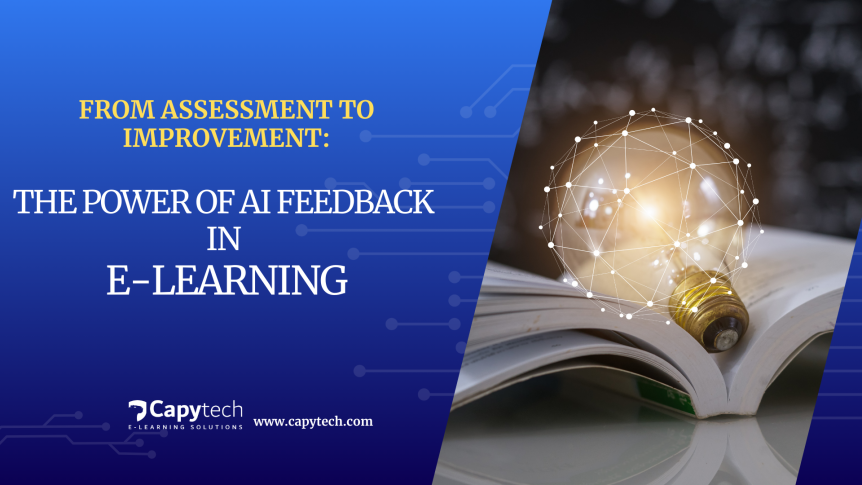From Assessment to Improvement: The Power of AI Feedback in E-Learning
In the ever-evolving landscape of e-learning, the integration of Artificial Intelligence (AI) has marked a revolutionary shift, not just in how courses are delivered, but also in how they are assessed and improved upon. AI’s role in gathering module feedback, as discussed in Exploring the Efficiency of AI in Gathering Module Feedback, showcases the beginning of this transformative journey. However, the application of AI feedback systems in e-learning extends far beyond mere data collection, venturing into the realms of personalised learning experiences, breaking language barriers, and enhancing the overall quality of e-learning modules.
Personalised Learning Through AI Feedback
The integration of AI in e-learning has paved the way for personalised learning paths that adapt to the individual needs of learners. AI feedback mechanisms, leveraging data from learners’ interactions, assessments, and preferences, create a tailored learning experience. This adaptability not only improves learner engagement but also ensures that the content is relevant and challenging enough to facilitate meaningful learning.
Breaking Language Barriers
One of the most noteworthy contributions of AI in e-learning is its role in multilingual education. As highlighted in AI in Multilingual Education: Breaking Language Barriers in Tutoring, AI-powered systems are equipped to offer feedback and instructional content in multiple languages, thus making learning accessible to a wider audience. This ability to transcend language barriers not only expands the reach of e-learning platforms but also enhances the learning experience for non-native speakers.
Quality Assurance Through AI Feedback
Quality assurance (QA) is a critical aspect of e-learning development, ensuring that courses are effective, accessible, and free of errors. AI plays a significant role in the QA process by automating the detection of content inaccuracies or technical issues within e-learning modules. This aspect of AI feedback not only streamlines the QA process but also contributes to the continuous improvement of e-learning content. For more insights into the importance of QA in e-learning development, refer to 10 Essential Quality Assurance Tips for E-Learning Development Projects.
Enhancing E-Learning with Scenario-Based Feedback
Scenario-based learning, as discussed in What is Scenario-Based Learning? and its subsequent benefits in The Benefits of Scenario-Based Learning, illustrates the effectiveness of immersive learning experiences. AI feedback can greatly enhance this learning approach by providing real-time, personalised feedback based on the learner’s decisions and actions within various scenarios. This immediate feedback loop not only aids in reinforcing learning but also in simulating real-world applications of theoretical knowledge.
Conclusion
The integration of AI in the feedback mechanisms of e-learning represents a significant leap towards creating more adaptive, inclusive, and effective educational experiences. By personalising the learning journey, breaking down language barriers, ensuring quality, and enhancing scenario-based learning, AI feedback systems are reshaping the landscape of e-learning. As we continue to explore and understand the full potential of AI in education, it becomes evident that the power of AI feedback in e-learning is not just about assessment but about fostering continuous improvement and innovation in learning methodologies.
For educators and e-learning developers, the implication is clear: embracing AI feedback systems is not just an option but a necessity in the quest to provide high-quality, engaging, and accessible education. As we move forward, the role of AI in e-learning will undoubtedly continue to expand, bringing with it new challenges and opportunities for enhancing the educational experience.
